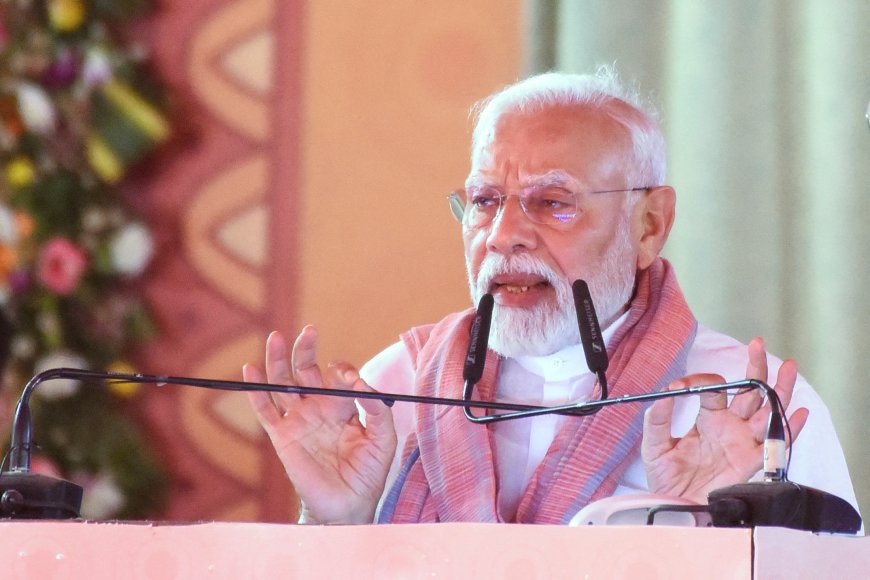Modi Blocks Water to Pakistan After Kashmir Terror Strikes
PM Modi declares Pakistan won’t get water from Indian rivers after Kashmir attacks. Operation Sindoor intensifies tensions around the Indus Waters Treaty.

In a major geopolitical escalation, Indian Prime Minister Narendra Modi asserted that Pakistan will no longer receive water from rivers over which India holds rights, signaling a new chapter in the already strained India-Pakistan relationship. The statement comes shortly after the recent terror attacks in Kashmir and India’s counter-operation dubbed “Operation Sindoor.”
The Prime Minister made this announcement during an election rally, stating, “Pakistan will not get even a drop of water from the rivers that are India’s right.” His remarks underline India’s aggressive diplomatic posture in the wake of increasing border tensions and terror activities.
This policy shift affects the Indus Waters Treaty, a long-standing agreement brokered by the World Bank in 1960, which governs the distribution of six rivers between the two countries. While India controls the eastern rivers (Ravi, Beas, and Sutlej), Pakistan benefits from the western rivers (Indus, Jhelum, and Chenab). Modi’s statement suggests India might reconsider this decades-old arrangement in retaliation for Pakistan-based terror activity (US News report).
Background: Operation Sindoor and Cross-Border Tensions
The shift in policy follows Operation Sindoor, India’s retaliatory strikes against terror camps believed to be responsible for coordinated attacks in Kupwara, Jammu & Kashmir. In these attacks, several Indian soldiers lost their lives, prompting what the government described as "targeted precision strikes" deep inside Pakistani territory.
According to NDTV's frontline coverage, Indian Air Force drones and missiles hit targets near Rahim Yar Khan, leaving Pakistani defenses reportedly on high alert.
PM Modi also took a pointed jab at Pakistan's handling of the strikes, saying, “Their biggest airbase is now in ICU. Pakistan’s system has crashed.”
What Happens to the Indus Waters Treaty?
India’s renewed stance raises questions about the future of the Indus Waters Treaty, often considered a rare success in India-Pakistan diplomacy. However, this is not the first time such a threat has been made. Similar discussions surfaced post-Uri and Pulwama attacks in previous years, but India refrained from taking drastic actions.
Experts quoted in The Hindu explain that while India has legal rights over the eastern rivers, unilaterally stopping or diverting water could lead to international arbitration and further escalation.
Political Implications
With the Lok Sabha elections underway, the timing of the announcement is crucial. Modi’s strong statements appear designed to consolidate nationalist sentiment among voters, showcasing India’s firm stance against terrorism and cross-border hostility. His speech, covered by Hindustan Times, also linked national security to water rights—a sensitive issue for both nations.
Global and Regional Reactions
The international community has called for restraint, urging both nuclear-armed nations to exercise diplomacy. Meanwhile, Pakistani officials have yet to issue a detailed response but have convened high-level security meetings in Islamabad.
This situation will be closely monitored by strategic analysts, as any alteration to the Indus Waters Treaty could trigger significant environmental, agricultural, and political consequences across South Asia.
Final Thoughts
India’s toughened approach marks a pivotal moment in South Asia’s political narrative. With elections, ongoing tensions in Kashmir, and the symbolic weight of water diplomacy, this story is far from over. Whether this rhetoric translates into real policy changes remains to be seen, but one thing is certain: the India-Pakistan water discourse is now front and center on the global stage.



 Utej
Utej 





